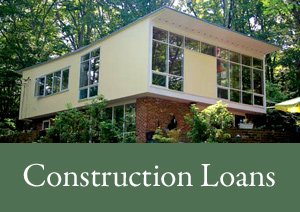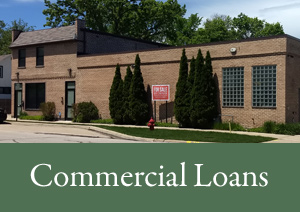Post
Are Construction Loans the Right Choice for Your Building Project?

Building your dream project from the ground up can be exciting and daunting. One of the biggest challenges is figuring out how to finance it. Construction loans are a popular option, but are they the right choice for your building project? Let’s break down what construction loans are, their advantages and disadvantages, and how to decide if they suit your needs.
Understanding Construction Loans
Construction loans are short-term loans designed to finance the building or renovation of a property. Unlike traditional mortgages, which are based on the property’s current value, construction loans are based on the projected value once the project is complete.
Types of Construction Loans
There are several types of construction loans, each catering to different needs:
- Construction-to-Permanent Loans: This loan initially funds the construction and then converts into a permanent mortgage once the project is finished. It’s convenient because you only have to deal with one loan process and one set of closing costs.
- Stand-Alone Construction Loans: These loans cover only the construction period. Once the construction is complete, you need to get a separate mortgage to pay off the construction loan. While this can sometimes be more expensive due to two sets of closing costs, it might be useful if you want to shop around for the best mortgage rates later.
- Renovation Loans: Specifically designed for projects that involve renovating an existing property. These loans consider the value of the property after improvements, making them ideal for extensive remodels.
Key Features of Construction Loans
Draw Schedule
One unique aspect of construction loans is the draw schedule. Unlike traditional loans, where you receive the full amount upfront, construction loans disburse funds in stages. Each stage corresponds to a milestone in the construction process, ensuring that the money is used as intended. This staged disbursement helps keep the project on track and within budget.
Interest Rates and Terms
Interest rates on construction loans are usually higher than traditional mortgage rates because they are considered riskier. These loans are short-term, typically ranging from six months to a year, with interest-only payments during the construction phase. Once construction is complete, the loan usually needs to be refinanced into a permanent mortgage.
Collateral Requirements
Construction loans often require significant collateral. Lenders typically use the property under construction as collateral, and some may require additional assets. Ensuring you have enough collateral is crucial for securing a loan.
Advantages of Construction Loans
Customization
One of the biggest perks of construction loans is the ability to finance custom-built projects. Whether you’re building a home tailored to your specifications or a commercial space designed for your business needs, construction loans provide the flexibility to create something unique.
Controlled Disbursement
The staged disbursement of funds means that money is released as needed, reducing the risk of overspending. This controlled flow of funds helps keep the project within budget and ensures that each phase of construction is adequately financed.
Potential Savings
In some cases, financing construction might be cheaper than buying an existing property. By building, you can avoid the premium prices of finished properties and have the opportunity to incorporate energy-efficient designs and materials, potentially saving on utility costs in the long run.
Disadvantages of Construction Loans
Higher Interest Rates
Construction loans often come with higher interest rates compared to traditional mortgages. This is due to the increased risk lenders take on, as the property’s final value is uncertain until the project is complete.
Complex Approval Process
Getting approved for a construction loan can be more complicated than securing a traditional mortgage. Lenders require detailed plans, budgets, and timelines, along with proof of your financial stability and creditworthiness. The documentation and approval process can be time-consuming and stringent.
Variable Costs
Construction projects are notorious for unexpected costs and delays. From fluctuating material prices to weather-related setbacks, these variables can quickly increase your expenses. Having a solid budget and contingency plan is essential to mitigate these risks.
Assessing Your Project’s Suitability
Project Scope and Budget
Before applying for a construction loan, assess your project’s scope and budget. Make sure your project aligns with what construction loans typically cover. Be realistic about the costs and have a detailed budget that includes a contingency fund for unexpected expenses.
Builder Qualifications
Hiring experienced and reputable contractors is crucial. Lenders will scrutinize your builder’s credentials, so ensure they are licensed, insured, and have a good track record. A qualified builder can make the approval process smoother and help ensure your project stays on schedule and within budget.
Personal Financial Health
Lenders will closely examine your credit score, income stability, and overall financial health. Ensure your finances are in order before applying. A good credit score and stable income can improve your chances of approval and secure better loan terms.
Alternative Financing Options
Traditional Mortgages
If your project doesn’t require extensive building work, a traditional mortgage might be a better fit. These loans are easier to secure and usually come with lower interest rates.
Home Equity Loans
For smaller projects, you might consider a home equity loan. Using your existing home’s equity can be a cost-effective way to finance renovations or additions.
Personal Loans
Personal loans can be a viable option for minor, less complex projects. They are easier to obtain and don’t require collateral, though they often come with higher interest rates.
Government Loans and Grants
Certain projects might qualify for government loans or grants, especially if they promote energy efficiency or provide housing in underserved areas. Research available programs to see if your project qualifies.
Steps to Secure a Construction Loan
Pre-Qualification
Start by getting pre-qualified to understand how much you can borrow. This step involves an initial assessment of your financial situation and gives you an idea of the loan amount you might qualify for.
Detailed Project Plan
Prepare a comprehensive project plan that includes detailed architectural drawings, a construction timeline, and a complete budget. This plan will be crucial for your loan application.
Choosing the Right Lender
Select a lender experienced in construction financing. A knowledgeable lender can guide you through the process and offer valuable advice. Look for lenders with a good reputation and competitive terms.
Loan Application Process
The application process involves submitting detailed documentation, including your project plan, financial statements, and builder information. Be prepared for a thorough review process and possible requests for additional information.
Tips for Managing a Construction Loan
Regular Communication
Maintain open communication with your lender and contractor throughout the project. Regular updates and transparency can help prevent misunderstandings and keep the project on track.
Monitoring Progress
Regularly check on the progress of your project to ensure it aligns with the budget and timeline. Address any issues promptly to avoid delays and additional costs.
Contingency Planning
Expect the unexpected by having a contingency plan in place. Set aside extra funds for unforeseen expenses and have strategies ready to handle potential delays.
Conclusion
Deciding whether a construction loan is the right choice for your building project involves careful consideration of your financial situation, project scope, and available alternatives. By understanding the benefits and challenges of construction loans, you can make an informed decision that aligns with your goals.
At 1st Eagle Mortgage, we specialize in helping clients navigate the complexities of construction financing. Our team of experts is here to provide personalized advice and guide you through every step of the process. Reach out to us today to explore your financing options and make your building project a reality.
No comments yet




